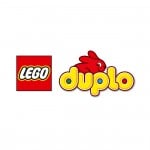

When parents find out I used to be a primary school teacher, there is one question I get asked overwhelmingly ahead of all the rest. Particularly when it comes to those who have children who are only a few years away from starting primary school.
What can I do to give my child a head start when it comes to starting school?
It seems everyone is always in a big race to get their child ready for school and when you think about it, it’s not hard to understand why. Navigating those years before your child officially enters formal education can be a minefield.
You’re battling conflicting advice from those around you such as your own parents, your grandparents, your brothers, sisters and friends who had children before you. Not to mention the advice you get from those who helped you through your pregnancy such as midwives, nurses and doctors. Then throw into the mix support systems such as mothers’ groups and Google, and all of a sudden, you’re being bombarded with information from every angle about what is the ‘best’.
Not to mention the fact that you also need to do what feels right for you when it comes to raising your children. You want to feel your way through, forge your own path and learn the ropes on your own, which is both understandable and reasonable.





Top Comments
The author of this article is pretty much correct.
Children need to play and use simulation to learn ... and play, especially group play, is one of the best forms of socialisation and developing "people skills", socialisation and communication.
To add to her list and to put my vast experience to use (41 years in public education teaching 'infants' ... pupils aged 4.5 to 8.5 years), I'd also suggest that all parents do these things:
1) read to small children (as young as possible ... as soon as they show enough attention to respond to a catchy poem or ditty or short tale)
2) have your children read to you ... from before school age is possible but certainly from the time they begin formal education and the process of reading.
3) buy your child a bookshelf and stock it ... a small book at first then a new one at every opportunity you can afford.
4) While they are toddlers, join the city/municipal/council library and use it weekly or, at least, fortnightly
5) Answer every one of their curious questions HONESTLY but, of course, in an age-appropriate way.
6) Keep them out of school until after they have turned six years of age. Yes, I as a teacher, agree with the Europeans in saying that the SEVENTH YEAR is the best or most ideal time to begin formal school education.
- - -
I'd like to add that children who read and are read to remain the most curious and creative throughout their schooling.
Children can never over-read.
- - -
And yes, it is possible that the 21st century child can have e-readers as their source but there is still amazing joy in turning the pages of books. Picture books are great for language stimulation is small folk.